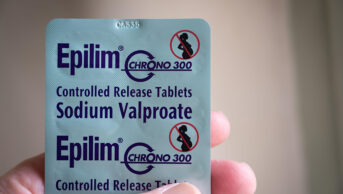
Shutterstock.com
Pharmacists working in general practice have “improved medicine prescribing outcomes” over a four-year period, shows a Department of Health and Social Care funded study looking at the effect of changing the skill-mix in primary care.
However, the introduction of new roles for healthcare professionals in general practice may have had “detrimental effects on patient satisfaction”, according to the study published in Social Science and Medicine in July 2022.
The study, carried out by researchers at the University of Manchester, analysed staffing data from 6,296 general practices in England between 2015 and 2019, alongside 10 indicators of quality of care covering accessibility, clinical effectiveness, user experiences and health system cost.
Researchers found that employment increased over time across four staff groups: GPs, nurses, healthcare professionals — including pharmacists — and healthcare associate professionals.
The largest increase was found to have occurred for healthcare professionals, with full-time equivalent (FTE) staff increasing from 0.04 per practice in 2015 to 0.28 in 2019.
In January 2019, the NHS announced the launch of the Additional Roles Reimbursement Scheme, which enables every primary care network to claim funding for hiring a selection of 14 different healthcare professional roles, including pharmacists.
A statement published by the National Institute for Health and Care Research (NIHR) on 22 August 2022, which awarded the researchers with £692,384 in funding, said: “Patient satisfaction with primary care services showed a negative trend over the study period.
“The study found this drop in satisfaction to be larger in practices that had employed more HPs [healthcare professionals].”
It added that for each additional FTE healthcare professional employed at a GP practice, overall patient satisfaction, which was measured based on the annual GP Patient Survey, dropped by 2.4%.
“However, pharmacists contributed positively towards some tasks, improving the quality of medicine prescription and reducing the burden of these activities for existing staff,” the statement said.
According to the study, the researchers measured the percentage of all antibiotics prescribed that were narrow-spectrum, with “the underlying assumption that a higher share of narrow-spectrum antibiotics represents an overall sign of good prescribing behaviour”.
The researchers noted that the increase in healthcare professionals is linked to “a positive and significant effect on the percentage of narrow antibiotics prescribed”.
“This result can be explained by the inclusion of pharmacist in the HPs category,” the study concludes.
Katie Hacking, a senior general practice pharmacist in Wigan, said she would “certainly agree with that study finding”.
She added: “The practices I have worked within so far have shown similar changes in prescribing patterns related to the use of antimicrobials, which I relate to stewardship provided by practice pharmacists, and prescribers having access to a pharmacist to query appropriateness of prescriptions at the point of delivery.”
Hacking continued: “I still come across many patients who are surprised to hear from a practice pharmacist as they are unaware this service was in place — but the overwhelming majority of my interactions with patients in my role are positively received, and I have had a number of patients who, following on from a first contact with me, have asked for me directly to assist with additional queries at a later date.”
Igor Francetic, a research fellow in health economics at University of Manchester and lead author of the study, said: “The introduction of new roles to support GPs does not have straightforward effects on service quality or patient satisfaction.
“In fact, we provide substantial evidence of detrimental effects on patient satisfaction when some health professionals and healthcare associate professionals are employed.
“Patient satisfaction is a crucial dimension of quality of care, as it contributes to individuals’ willingness to seek care through GPs.”


